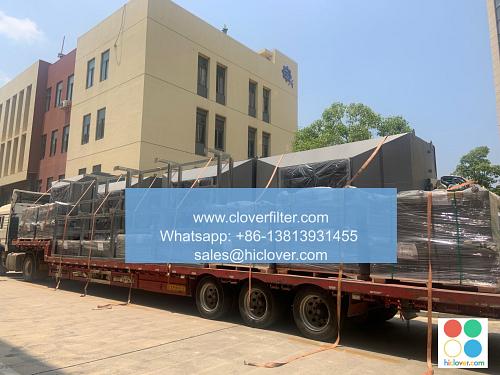Air Filter Production: Advanced Design Concepts

The production of air filters has become a crucial aspect of maintaining indoor air quality, and with the advancement of technology, advanced design concepts have emerged. In this article, we will delve into the world of air filter production, highlighting various application areas, and exploring the latest design concepts that are revolutionizing the industry.
Introduction to Air Filter Production
Air filter production involves the manufacturing of filters that are designed to remove pollutants and contaminants from the air. These filters are used in a wide range of applications, including HEPA filtration systems, activated carbon filters, and ultra-low penetration air (ULPA) filters. The production process typically involves the use of nanofibers, membranes, and other advanced materials that are designed to capture even the smallest particles.
Advanced Design Concepts
In recent years, advanced design concepts have been developed to improve the efficiency and effectiveness of air filters. Some of these concepts include:
- Computational fluid dynamics (CFD): This design concept uses computer simulations to model the behavior of air and particles within the filter, allowing for the optimization of filter design and performance.
- 3D printing: This technology enables the creation of complex filter geometries and structures that cannot be produced using traditional manufacturing methods.
- Nanotechnology: The use of nanomaterials and nanofibers has enabled the development of filters with improved efficiency and reduced pressure drop.
Application Areas
Air filters are used in a wide range of applications, including:
Industrial Air Filtration
Industrial air filtration systems are used to remove pollutants and contaminants from the air in manufacturing facilities, chemical plants, and pharmaceutical facilities. These systems typically involve the use of HEPA filters, activated carbon filters, and pre-filters to capture particles and gases.
Residential Air Filtration
Residential air filtration systems are used to improve indoor air quality in homes and apartments. These systems typically involve the use of portable air purifiers, whole-house air filtration systems, and HVAC filters to capture particles, gases, and odors.
Medical Air Filtration
Medical air filtration systems are used in hospitals, clinics, and other healthcare facilities to remove pollutants and contaminants from the air. These systems typically involve the use of HEPA filters, ULPA filters, and biosafety cabinets to capture particles and microorganisms.
Conclusion
In conclusion, air filter production has become a critical aspect of maintaining indoor air quality, and advanced design concepts have emerged to improve the efficiency and effectiveness of air filters. By highlighting various application areas, including industrial, residential, and medical air filtration, we can see the importance of air filters in improving the health and well-being of individuals. As technology continues to evolve, we can expect to see even more advanced design concepts emerge, further revolutionizing the air filter production industry. You haven’t provided a question or topic to discuss. Please provide more context or information so I can assist you. What would you like to talk about?

